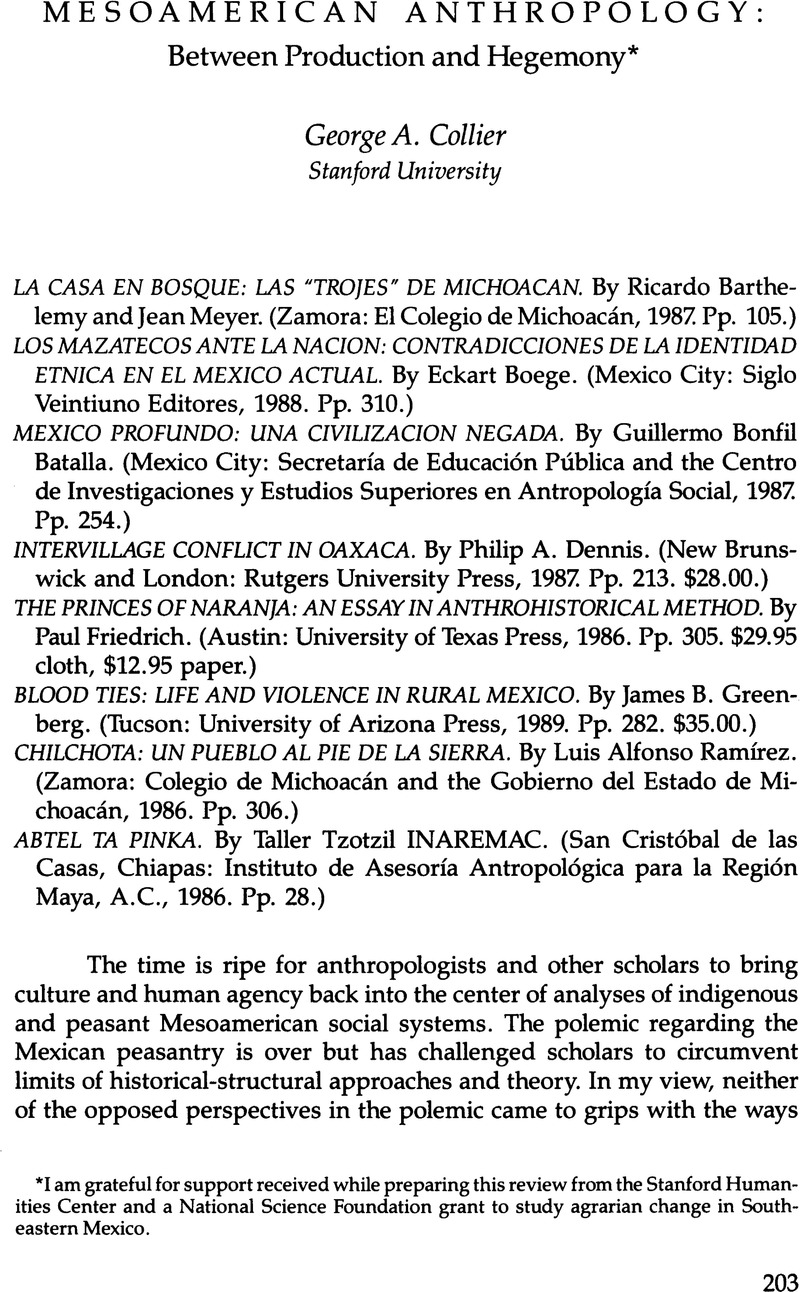Article contents
Mesoamerican Anthropology: Between Production and Hegemony
Review products
Published online by Cambridge University Press: 12 October 2022
Abstract

- Type
- Review Essays
- Information
- Copyright
- Copyright © 1991 by the University of Texas Press
Footnotes
I am grateful for support received while preparing this review from the Stanford Humanities Center and a National Science Foundation grant to study agrarian change in Southeastern Mexico.
References
Notes
1. See Roger Bartra and Gerardo Otero, “Agrarian Crisis and Social Differentiation in Mexico,” Journal of Peasant Studies 14, no. 3 (1987):334–62.
2. Friedrich's anthrohistorical method in this volume experiments with a self-reflexive treatment of his own role as a narrator of Naranja's political history. The manner in which Friedrich draws the personal and the political together in his analysis and the explicit attention he devotes to the creative process of writing are facets that address many current anthropological concerns with the nature of “writing culture.” Anthropologists and historians will learn at least as much from Friedrich's method as they will about the substance of Naranja's political life.
- 1
- Cited by




